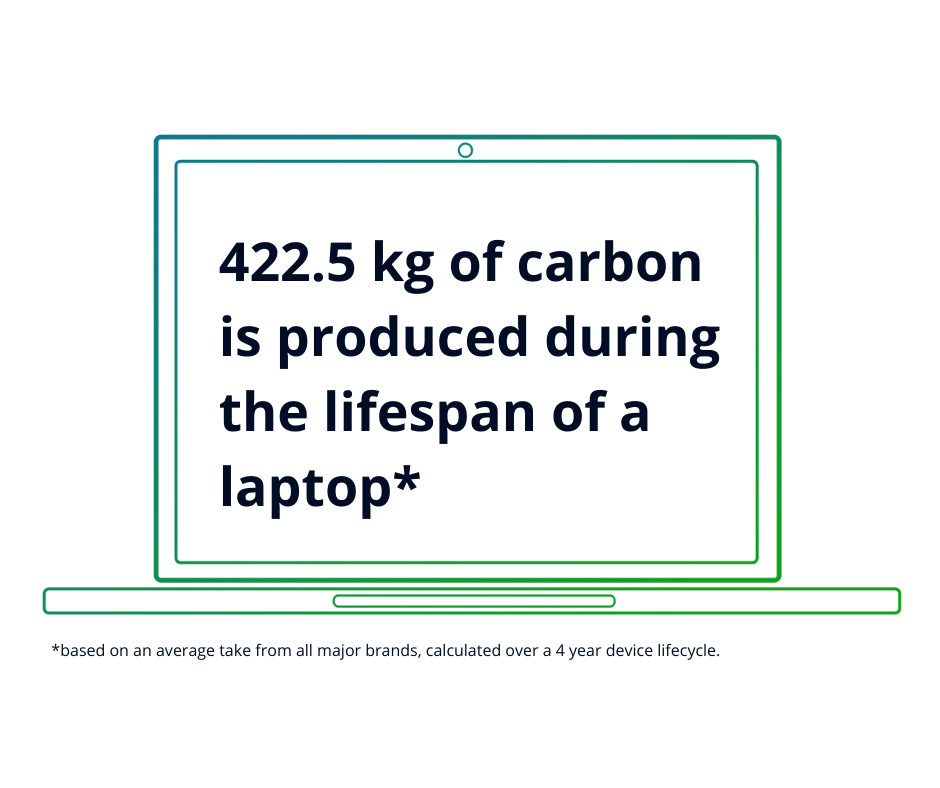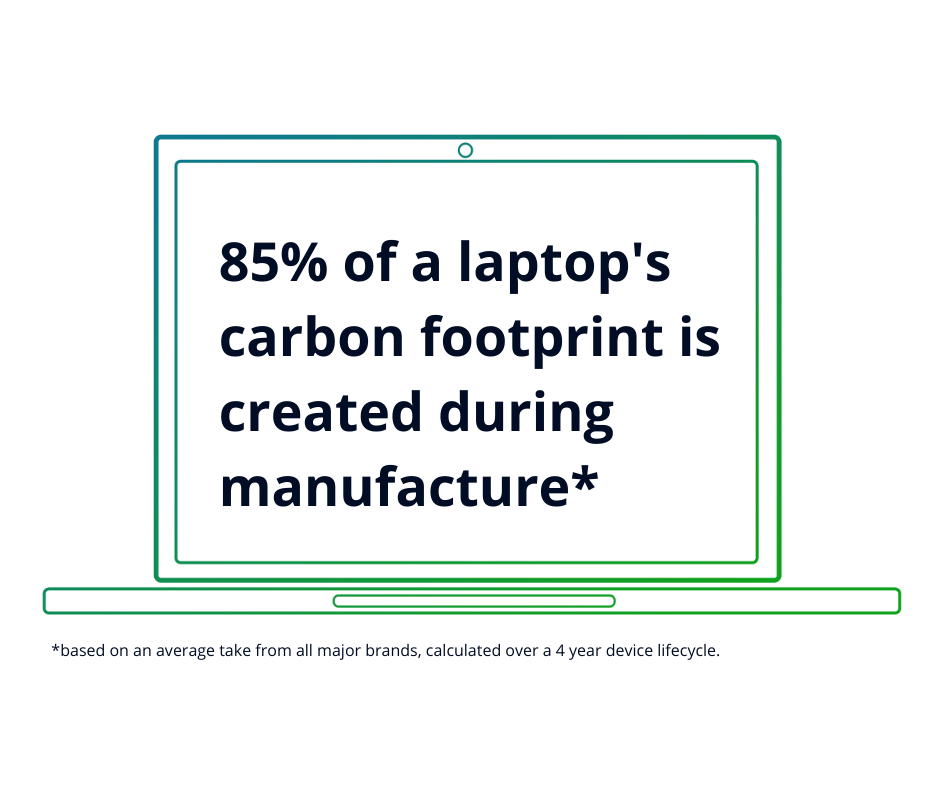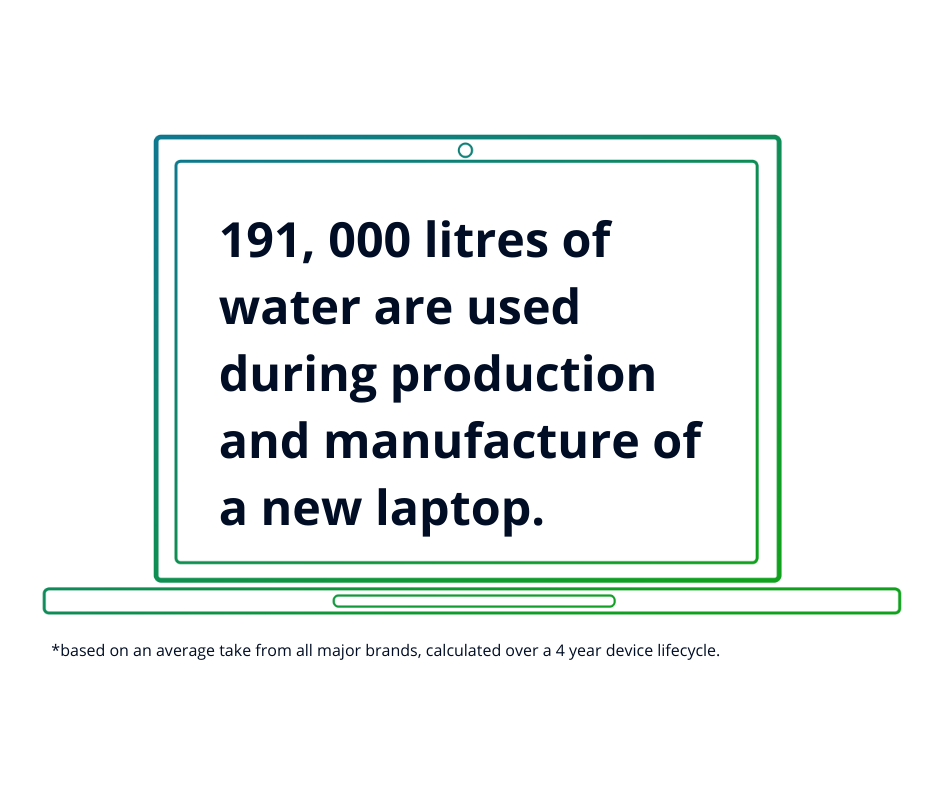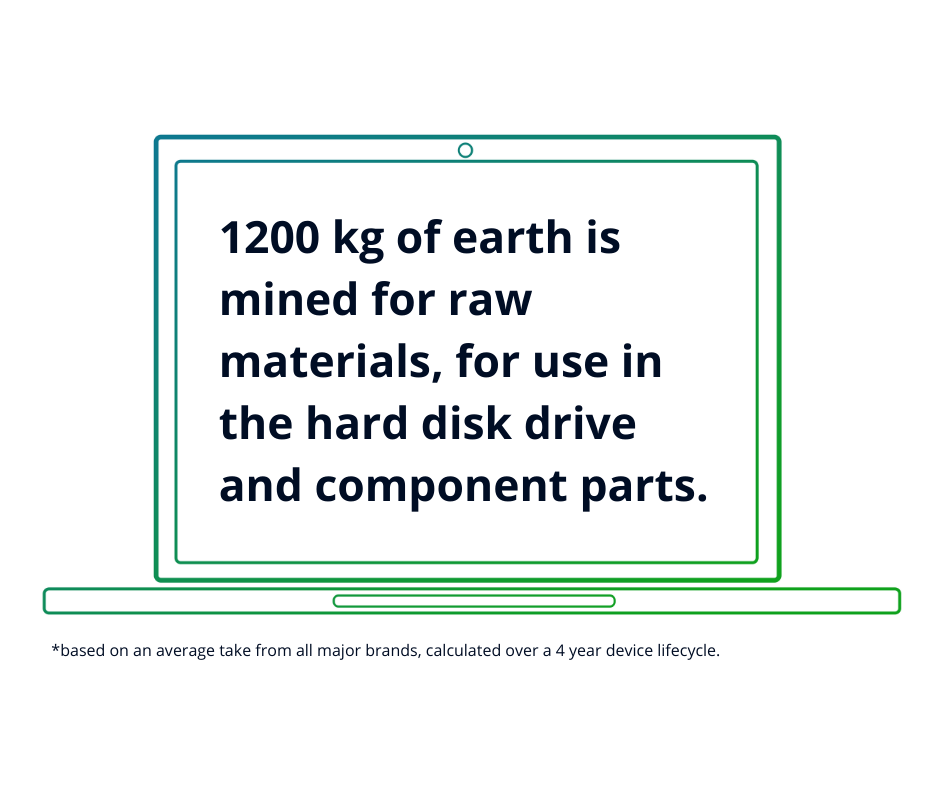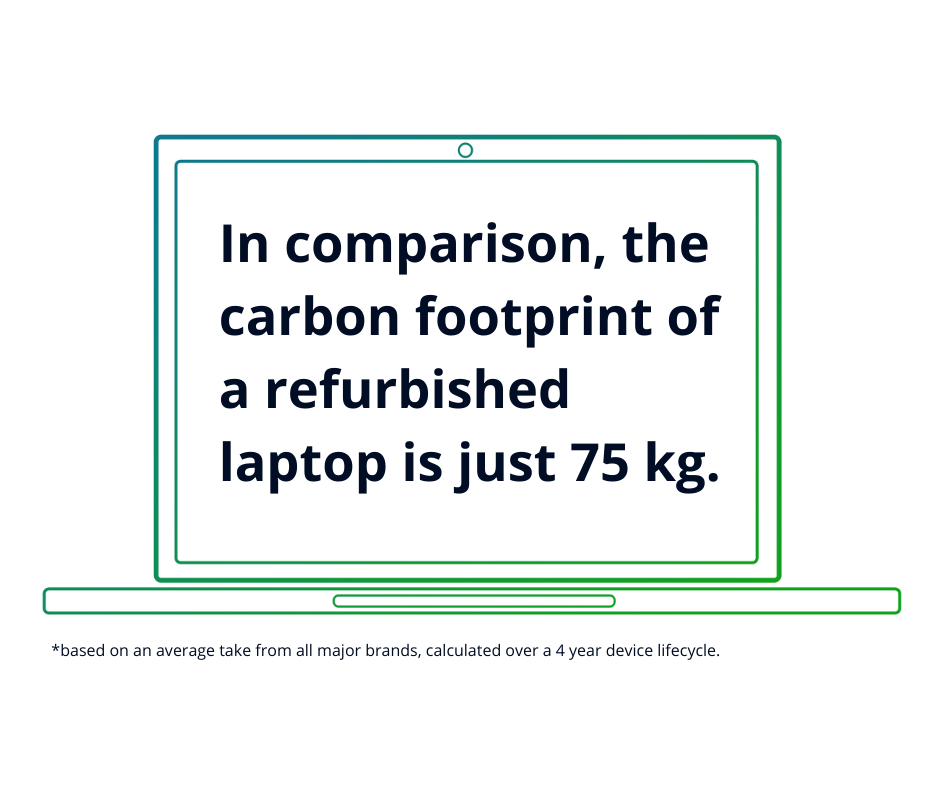Carbon Savings at End of Life
The pandemic has had a major impact on workforce availability and accessibility. Since 2020, the technology industry has had to step up the manufacturing of mobile devices to meet the demand for flexible working which comes with significant environmental impact.
Simon Welch, Associate Director of Environmental Compliance for the Guernsey Recycling Group (GRG) talked to Business Brief about how we can dispose of our unwanted IT hardware such as laptops and the positive alternative choices that Galaxy CI offers.
Globally, 160,000 laptops are disposed of every day. 160 million more were made last year alone.
Up to 85% of a laptop’s carbon footprint is generated during the manufacturing process, due to the mining and use of raw resources but using trusted reuse and recycling routes at the end-of-life stage can significantly decrease the environmental impact associated with this.
Many companies may be simply sitting on redundant, unwanted IT equipment which have the potential to play an important part in the circular economy.
Extending the Lifespan
Galaxy has been processing commercial and domestic IT and electrical waste for reuse and recycling for more than 25 years. By operating a ‘zero to landfill’ policy and following the waste management hierarchy, we aim to reuse and recycle components and materials that we receive to be fed back into the manufacturing process.
Our team of trained operatives assess all types of computer hardware including servers, networking equipment, PCs, laptops, tablets and mobile phones and determine whether the device or its component parts can be refurbished or re-used.
Those that are still energy efficient can be erased using certified software, refurbished and re-used. The manual nature of this process uses significantly less energy than the manufacturing of new devices. These secure, certified services increase the lifespan of carbon and water-intensive IT hardware and reduce the need for mining of raw materials for new products.
Hardware that may not be suitable for reuse is stripped to separate each component including precious metals which are then processed and fed back into supply chains for re-use, refurbishment, repair, or recycling.
The carbon footprint of a refurbished laptop is approximately 75kg; significantly lower than that of a new device.
It is thanks to our thorough processing that Galaxy achieved a recycling rate of 75% of all domestic and commercial computer hardware e-waste that we received in 2021, which is much higher than the European average of 42.5%. 22% of the devices and components we received were re-used, and the remaining 3% of items that could not be reused or recycled - such as film, CDs, and some toner cartridges -were sent for recovery to generate energy.
Sustainable Supply Chains
Galaxy is the only on island IT disposal service to hold the ISO 14001 Environmental Management Standard which aligns our operations to support the United Nations Sustainable Development Goals. This certification, together with our ISO 9001 Quality Management and ISO 27001 Information Security Management certifications provides assurance that IT hardware is being processed ethically, securely, and sustainably. As part of our quality assurance processes, we conduct regular, detailed audits to ensure that our onward processing partners are adhering to the principles of the circular economy
To further mark our commitment to the effective measurement of our environmental impact, journey to change and continuous improvement, Galaxy has become an Environmental and Social Impact Monitor and is currently working towards the ESI Monitor Environmental Business Operations Award.
Learn more about our processes here, or contact the team.

